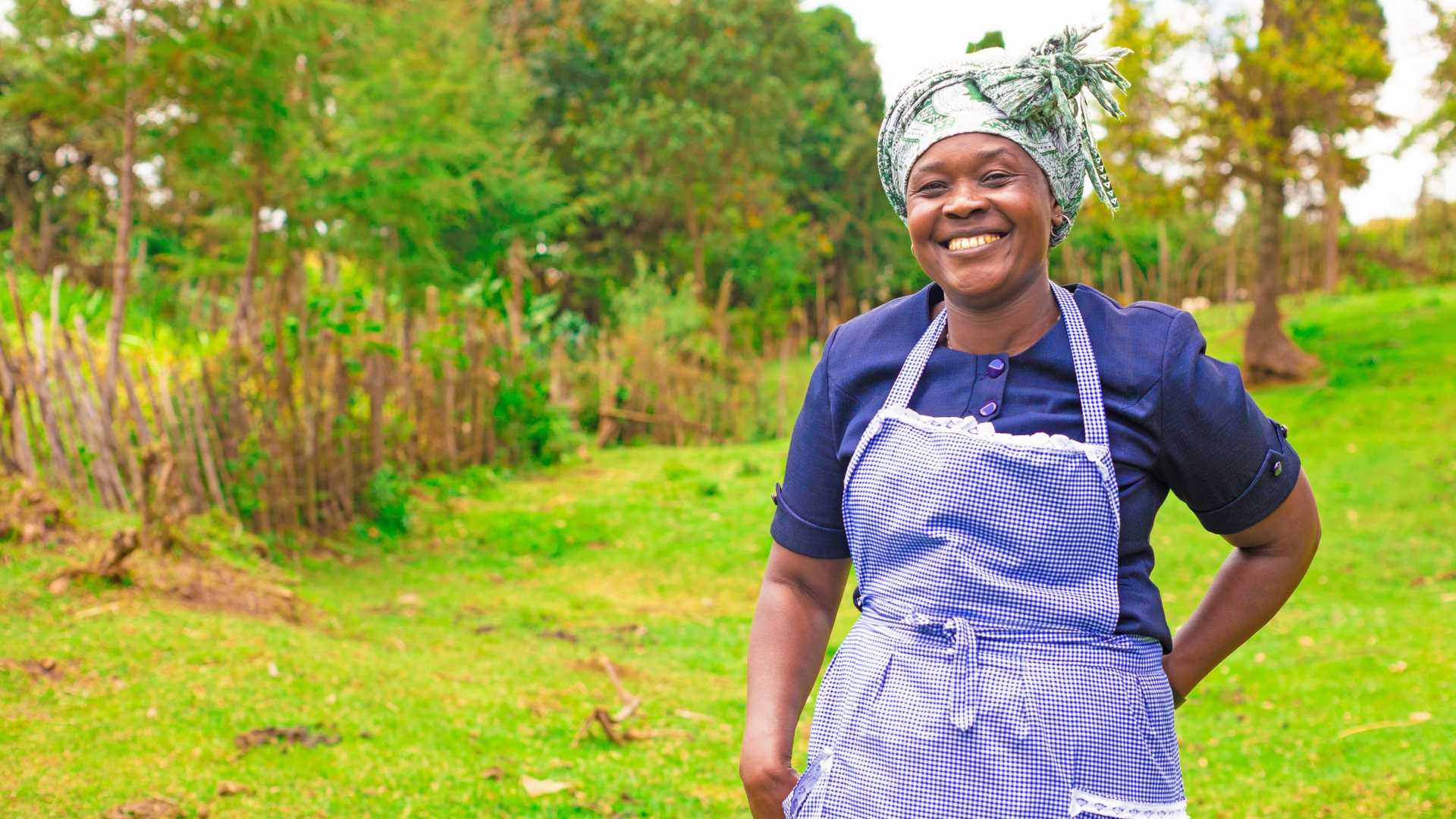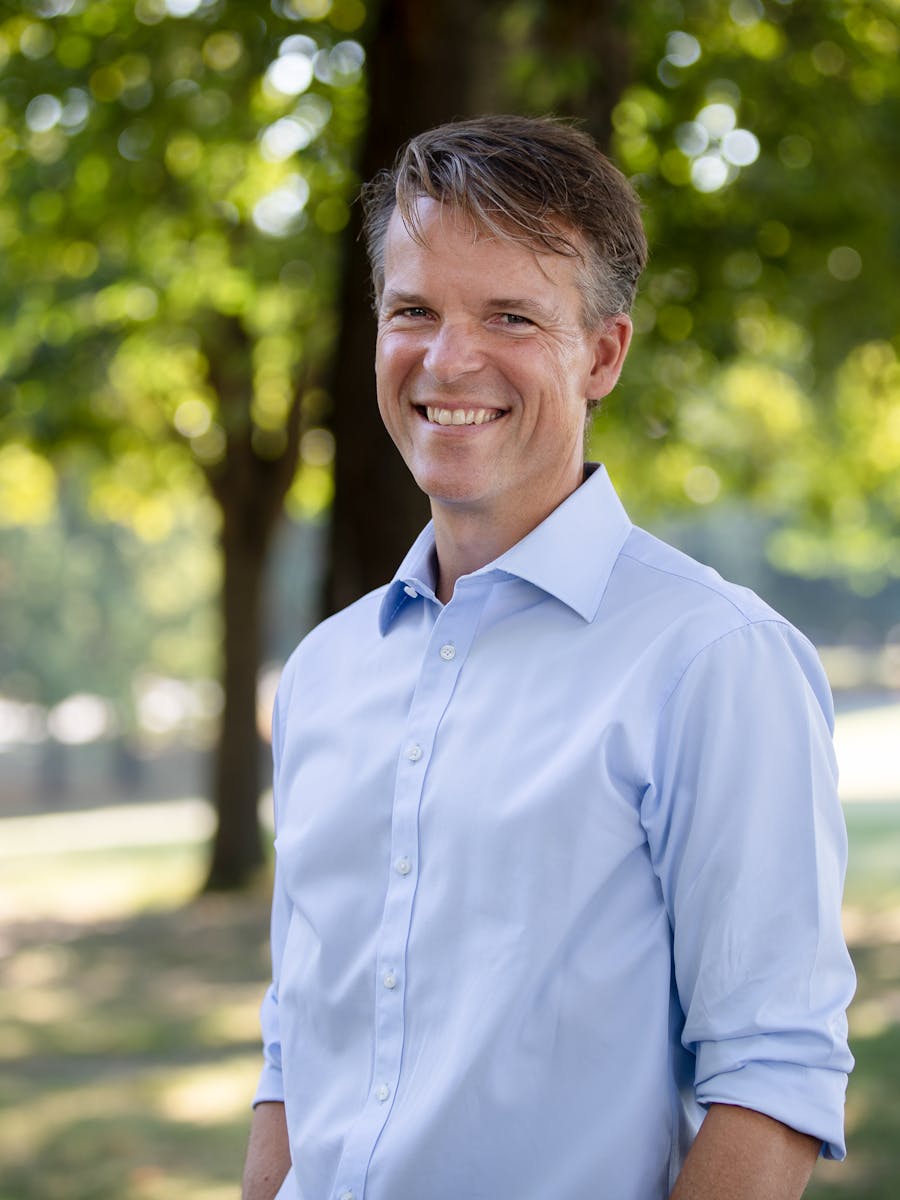
Reflections from 10 years as Chair: Bjarne Kveim Lie
In the time that Bjarne Kveim Lie was Chair of the Board, Abler Nordic (formerly NMI) tripled capital under management to $345m and grew from an Oslo office with 6 employees, to an organisation with 22 people of 9 nationalities across 5 global offices. Here Bjarne shares his perspective on the growth and development of Abler Nordic and what the future holds for financial inclusion.
You're stepping down after 10 impressive years as Chair of the Board. How does it feel to be handing over the reins?
When I first saw the draft strategy documents at Abler Nordic’s inception, it looked very different. Different organisation, much smaller— it was only in Norway, and now we're in five different countries. Abler Nordic had a very different strategy, and I would perhaps argue it hadn't quite grown up, it didn't quite have the clarity about what it wanted to become.
I think the team has done an incredible job to really build out and get clarity around what they want to be, what their role is and how they can add value. I think the organisation is in great shape, and I think Anders Misund—the new chair—is the perfect fit with his background and passion for these types of investments. I think he will do a fantastic job.
Why is Abler Nordic’s work so important right now?
For the same reason it’s been important for the last 15 years—that there are billions of people globally who don't have access to basic finance. When I first engaged with microfinance, we used to think it was about enabling entrepreneurs with funding to grow, and therefore create jobs and therefore create economic development. What we've grown to understand, is that financial inclusion means so much more than that. It's being able to have somewhere safe to put your savings, as opposed to in cash under your mattress, so you can smooth up your spending. It's about having access to micro-insurance. It’s much more than lending—it’s about enabling really poor people with access to things that we take for granted.
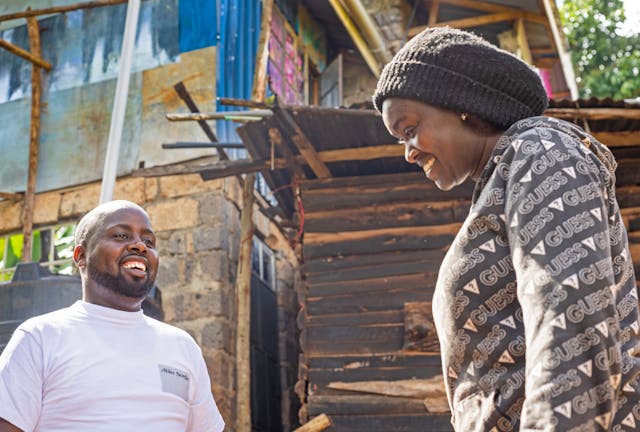
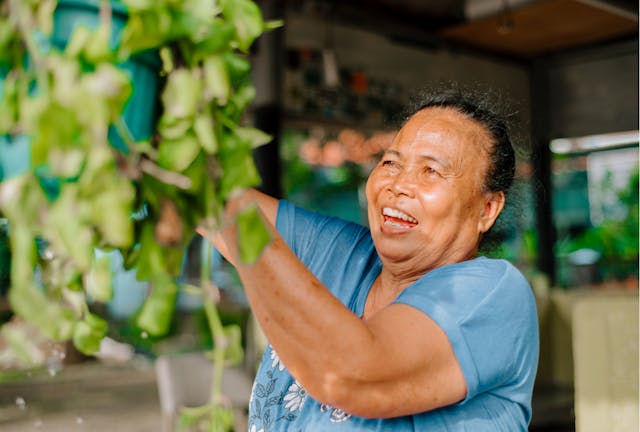
What are some key moments from your time as Chair?
IFU, the Danish development investor, joining forces with us and allowing us to get to critical scale was a strategic block in the journey of Abler Nordic, that, in turn, has led to what was the second core event— the establishment of a meaningful presence in the local target markets. And now today, the digitalization journey that is well underway. But fundamentally, the most important thing I've done by far is to get Arthur to accept the job as CEO, because it’s him and his team that have done this, I’ve just been a cheerleader in the background.
How has it been chairing a public-private partnership?
I think that what has inspired and impressed me about Abler Nordic is that it is actually a functioning public private partnership. If we're going to solve the challenges that we face collectively as a civilization—at the risk of sounding hugely pretentious—we need public and private sector to go hand in hand and not sit on each side of the fence and distrust each other.
I think Abler Nordic has been a great example of that, and a lot of credit goes to Johan H. Andresen and Ferd for the idea to establish Abler Nordic, to Norfund, KLP and DNB that have been with us since the start, and of course IFU and the additional private investors, especially in Denmark, that have joined. The public sector needs to find ways to be a good catalyst to mobilise private capital. Both the Foreign Exchange (FX) Facility, funded by the Norwegian Ministry of Foreign Affairs and administered by Norfund, and the Technical Assistance (TA) facility funded by Norad, have been hugely important parts of Abler Nordic’s set-up.
The FX facility is effectively insurance policies that back-stop currency loss if the currencies move too much. Over the 10 years I was at Abler Nordic, I think it has cost the government roughly 16,000 USD and it's saved millions of dollars for low-income customers and has helped mobilise millions of dollars in investment.
The Technical Assistance facility has been critical in building capacity at the organisations Abler Nordic has invested in, allowing them to grow their outreach and better serve customers, and again helping to mobilise large amounts of private capital. Norad have given the management team the trust to execute on their mission and have been hugely supportive.
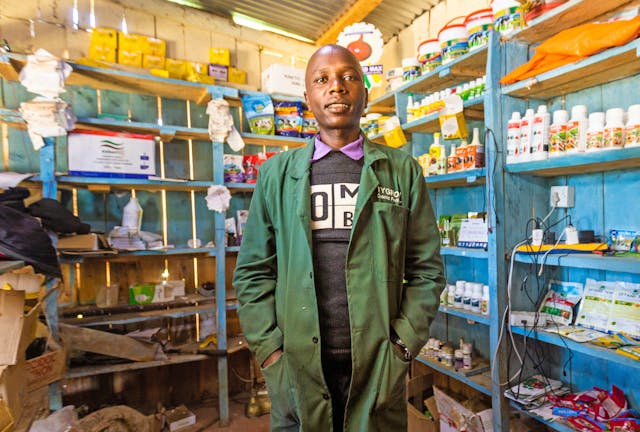
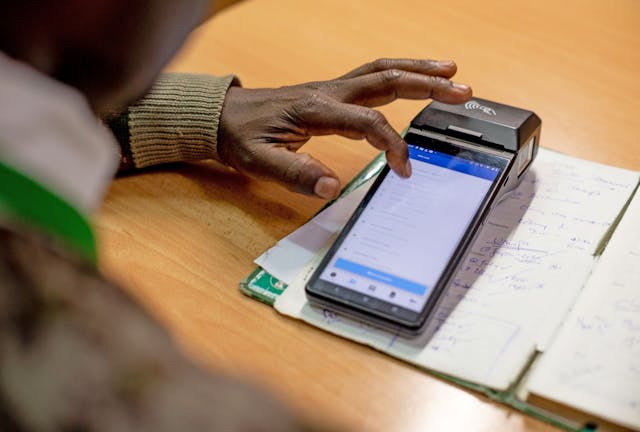
How has Abler Nordic evolved over the years?
Initially Abler Nordic’s focus was very much on diversification and loss aversion. My argument was to build a really big, diversified microfinance portfolio, are you then having enough impact? How do you know you’re additional, and how can you feel comfortable that you’re moving the needle?
Abler Nordic today has a different sort of strategic clarity; that they help build great financial inclusion institutions by not doing a broadly distributed fund or funds or debt portfolio, but they go in as a hands-on active owner and try to build great institutions that drive down the cost of access to capital for the underserved, which is what fundamentally this is all about. If you purely profit optimise by providing financial services to the poor, you risk causing more harm than you do good. And equally, if you just do it as donation capital, it's not sustainable or scalable.
I think that balance that Abler Nordic has struck is super interesting and differentiating compared to sort of the hyper commercial, purely profit optimising players that you have, and the sort of government organisations and “do-good organisations” that have a very different toolkit and approach. I think we sit at that bridge and that's a core reason why Abler Nordic has started to build a really strong position in the market, both towards investors and towards companies.
What opportunities and challenges do you foresee in the financial inclusion space in the coming years?
Well, we live in volatile times, right? We used to say that when, when the US sneezes, the world catches a cold, and then you should probably add that emerging economies catch pneumonia. How will emerging economies fare through this?
Another point that is really interesting is that the whole financial industry, broadly defined, is being turned upside down by cloud technologies and innovation. Some of the things we’re seeing with M-PESA, for example, in Kenya, that people are talking about as a huge step forward for financial inclusion and access to financing.
But, when you see the curves of that where the peak lending hours are sort of young males from midnight to 2am on a Saturday, I'm thinking that that's actually more old-fashioned, aggressive consumer lending, which is detrimental to people's welfare. How we can leverage the best of that technology, which massively reduces the cost to serve people with financial services, without creating indebtedness is one of the core challenges for the industry in the next five to ten years and beyond.
Why did Abler Nordic establish the Climate Smart Fund in Indonesia?
Deforestation, as you know, is a core driver of climate change and Norway has a leading international role in multilateral deforestation initiatives through the UN and other bodies.
What Abler Nordic does today with the Climate Smart Fund is leverage the microfinance toolkit to create what we believe is a win-win-win—you improve the life of palm oil small holders in Indonesia by supporting them to increase their yields on existing plots, you minimise or even remove deforestation because the support is conditional upon no deforestation, and you get a decent financial return to your investors.
It’s interesting to see now how also the plantation owners are partnering because they see that if you're going to solve the increase in palm oil demand by basically doing what has been done historically, which was to chop down rainforest, then there'll be no rainforest left in Asia at all. So, you find smarter ways to go about it.
We were able to able to secure seed financing from the Norwegian Ministry of Climate and Environment and the project is well underway in the pilot stage. My hope is that Abler Nordic will raise at least $100 million for the Climate Smart Fund in the next few years.

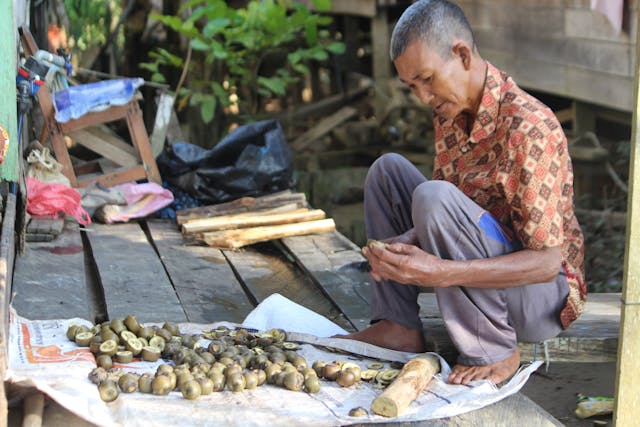
Something about yourself that might surprise us?
I keep insisting that I don’t work in the finance industry. I like to think that I'm in the business of building businesses, because that's what we do when we build Verdane, it’s what we do with the businesses Verdane invests in. That's what I was doing in helping Abler Nordic build a great organisation, and Abler Nordic is fundamentally about helping build great companies.
What are your hopes for Abler Nordic moving forward?
My friends always make fun of me because I always say I'm obsessed about growth. But I growth is what creates impact and growth that creates interesting places to work. Growth is exciting, and I think Abler Nordic is in a unique position to continue to grow!
There’s also now around $80 trillion worth of private wealth out there, and I think that wealth is passing gradually from the hands of a generation that didn't really think that much about social responsibility to a generation that does. I think access to capital for players like Abler Nordic that very clearly says: ‘We will protect your money. We'll give you a decent return. But the reason we're in business is to help people’. I think there's a there's a huge market for that that Abler Nordic can grow into if the team keeps executing well.
